|
*Warning! This post is very spoiler-y. If you haven't read books 1 & 2 of my Whitewashed trilogy, you're gonna be supa confused, and you'll ruin the series for yourself, soooo... don't proceed. Stop reading. Now. K bye.* Have you ever wondered what would happen if you saw Star Wars in chronological order? Would the plot make sense, or is part of Lucas' genius that they must be watched 4-6, then 1-3? Like most millennials, I grew up watching the films in release order. I can remember seeing Phantom Menace and geeking out over the cherubic Anakin. "This kid's gonna grow up to be Darth Vader!" That foreknowledge is both a blessing and a curse. Because of it, I caught all the Easter eggs. And because of it, Anakin's downward spiral seemed contrived and disjointed. Lucas knew Anakin would turn, and that knowledge congested Anakin's character arc, painting him as an unlikeable creep before he'd killed any younglings. Lest this post turn into a rant about Anakin and his feelings on sand, I'll shift gears back to my trilogy. When I first came up with the plot for my series, I always intended to write the books in chronological order. It was my then-boyfriend, now-husband who suggested I tackle the first two books in reverse. "It would be really boring for the reader to know more than Ella does in Book #1," he said. "You should start the story after Ella's memory is wiped, that way the reader discovers the truth alongside her." Book #2 would really be the beginning, and Book #1 would be the aftermath. That idea intrigued me. Imagine how many Easter eggs I could pile into Book 1! Imagine the delight of writing *this* scene, knowing it won't make any sense until Book 2! It'd be my own private joke that readers could appreciate later. And so, when I started writing The Trace in Astronomy class freshman year of college (correct, I was definitely not paying attention), I began Ella's story post-memory wipe. The first sentence - which has since been rewritten - read, for many drafts, "The first thing that hit me was the smell." Even THAT was an Easter egg! Why did the smell of her own home strike her as unique? Because she hadn't smelled it in over a year! Quite a few years (and drafts) later, the full story is out there. Readers can walk through Ella's confusion in The Trace, then have all their lingering questions answered in The Integer when they learn about her past. "Ahh, she'd met all these cadets before! Ooooh, she didn't spontaneously become athletic. Eeeep, so THIS is why Chron acts like he knows her!" I love hearing my readers exclaim, shout, and gasp as Ella's story slides into place, but part of me always wondered (a very dangerous business, wondering is): What would happen if someone read the books chronologically? - Would the story make sense? - Would The Trace be boring because readers would know more than Ella does? - Can The Integer actually work as an introductory novel to a series? - Is it possible for my series to flow the way I want it to in reverse? Of course, the only way to have these questions answered was by asking someone who's read the books chronologically. But who would ever think to do that? No one, because readers are intelligent creatures. If I wanted to get my answers, I'd have to find readers who knew nothing of the plot, then hand them my books - and some instructions - and let them have at it. So that's what I did. I shared my idea on Instagram expecting to get a few bites. When readers came out of the woodwork to ask more about this "weird" reading experiment, I realized I should preface every Instagram post with vague intrigue and mystery if I want to get any attention. (Just kidding. Sort of.) In fact, so many readers were curious that I decided to expand my reading pool from one to three. Then, because that didn't feel very satisfying, I opened the experiment up to any reader. Three readers received the print books, while the rest were emailed eBooks. Configuring the reading outline for the print books was doable, albeit time-consuming. Figuring out how to control the eBook trajectory was a whole other monster. Here's why.
The last chapter of Book #1 works as the first chapter of #2 - BUT, the prologue of #2 comes before the last chapter of #1. Readers had to go from #2 prologue to #1 final chapter; then, #2 Part I, followed by ALL of #1, and then back to #2 with Part II. Confusing, right? Yes. Yes it is. I got very mixed-up while planning this and had to ask myself a dozen times whether I was sure I'd gotten my own dang timeline correctly. Anyway, by some miracle, my guinea pigs managed to follow along, though I did get lots of "Wait, so I do it THIS way, right?" messages. I sincerely applaud every eBook reader for having the patience to keep up! If someone asked me to jump from book to book on my Kindle, I'd be like, "Ehhhhhhhhhhhhhhhhhhhh. No thanks." Now, you probably want me to get to the point. How did it go? Were readers able to keep up with the plot? The answer to that was a shocking, resounding YES. The books work in reverse order! I'm as amazed as you are. To streamline the results in a readable way, I'll do a list of pros and cons. There was a general consensus to this, though a few readers felt differently. PROS:
CONS:
In conclusion, every reader at least enjoyed the series, and most would agree that #2, The Integer, is their preferred book. I'd have to agree. The Integer not only goes far more in-depth with the characters--it's also my second stab at a book, which means my writing is stronger. If I follow the same trajectory, Book #3 will be the best! Overall, I'm happy with how this turned out. My hypothesis was that readers would feel disconnected from #2, having not read #1 first, but no one complained of this. I also suspected #1 would drag, and while the beginning did for some readers, most appreciated knowing more than Ella. My Easter eggs in #1 were noticed, and the side characters (Ethan, the cadets, One) were viewed in entirely different lights. This being said, I stand by my decision to write the books in the order I did. Following Ella's emotional journey properly is crucial to understanding her character arcs, and the shock factor is entirely lost when the reader knows 1) Ella's memory was wiped; 2) Grifters aren't evil; 3) Sanders/Leader/Eugene Andrews is the real villain; 4) One is an individual Tacemus; 5) the reason behind the cadets' behaviors; and much more. While it's cool to know Ella's backstory before she does, that perspective does ruin what I wanted to do with this trilogy. To all my readers: thank you so much for sticking through this convoluted experiment. Your feedback was enormously helpful in scratching that curious itch. Now I can rest assured knowing that, somewhere out there, people actually know how my story works in a chronological order. It was a weird itch to have, but authors are allowed to be weird. (We are. Don't argue.) P.S. In case you thought I was lying about everyone commenting on Ethan, I present this reader feedback:
You heard it from them first. Read my books, because Ethan is amazing.
0 Comments
Why do we write? Well, for the same reason that we read: we believe in stories. My story started cooking in my head long ago, but I never had the will to do anything about it—until someone believed in me. A pinch of belief mixed with an ounce of determination (and, most notably, eight million heinous drafts) can produce a book.
It all comes back to the gap in my bookshelf. A slit between my books judged me every day, grumbling, “Why haven’t you filled me yet?” My excuse typically had something to do with time. I never seemed to have enough of it. To any writer struggling to put words on paper, time does exist; you only have to grab it when it finds you. So, about that bookshelf gap…. It demanded that I fill it with the story I’d always wanted to read, the story no other book could quench. This story of mine revolved around a girl whose name shifted and bounced, whose personality wavered as I grew. Her authenticity, however, remained. I often took issue with the YA protagonists of my youth—too bland, too faultless, too accepting of the mantle thrust upon them, too hardcore, or too “Why me?” My own brand of perfect protagonist floated in the “Just hang out there until I say you can leave” part of my brain. This protagonist struggled to jump right into the “conquering hero” mold; she could be cringe-worthily cheesy and awkward; she had faults that she tried ignoring; she got scared when the time to be heroic came; and, she was human. By that I mean ordinary, flawed, and most of the time unsure whether or not any of her efforts would make an impact. This protagonist floated in and out of the ideas my brain conjured. One day, she found her story and stayed put. Take a covert operation of powerful humans, an army of even more powerful enemies, an ordinary girl who suddenly changes, a best friend who needs protecting, and you’ve got the stirrings of Ella’s story. It’ll twist, characters will make mistakes, truths will find the light, and bad guys will reveal their humanity. This story might make you groan, laugh, grimace, cry, roll your eyes, or throw something—like the book itself. Hey, paperback is durable; it can withstand a few hurls against the wall. Most importantly, though, The Trace will nudge something in you—be it good or bad—because it’s a story and that’s what stories do. The Trace is Ella Kepler’s tale—no doubt about that—but she’s only a fragment in a plot that expands the more she uncovers. She grows, she retrogrades, she falls, and she falls again—and the story around her continues, because the world will turn, even if we stop. My hope is that Ella’s world will turn with you. *This post was originally published at Evolved Publishing's website here* Once upon a time, the symbol didn't exist. And then someone was like, "You should have a symbol that carries throughout the book" and I was like, "Okay" and then the symbol existed.
The symbol has progressed from a crooked blob to a more crooked blob that's even blobbier. Here are my attempts at drawing that probably make the people in class wonder if I'm a psychopath who has an obsessive need to draw a weird shape all over the margins of her notebook. ^^ Not really. Though that would be cool.
Ella Kepler was created in Astronomy class, hence the space reference here and throughout Whitewashed. Her name was stolen from my favorite childhood book, Ella Enchanted. (Let's not talk about the movie. No really, don't bring it up. I will get depressed.) The name "Ella" was a filler at first, because I had no idea what else to call her. The last name came from the fact that, when I started writing, we were discussing Kepler's laws of planetary motion. Which I still don't really understand, but I think Kepler is a cool name. As the story progressed, the name Ella started to fit her character, and I realized that she was officially Ella Jane Kepler. So, tomorrow The Trace will officially release. Books won't plop on doorsteps at 12:01 a.m., but eBooks will unlock, and, later this week, paperback "Hey-these-are-real!" books will start arriving. Which leaves me over here a bit like this: That's right. Sure, I've got a little bit of this, but I'm mainly a puddle of self-doubt and terror. Why am I like this? Well, because I'm a human being, not a bastion of assurance and repose.
It's a dangerous business, going out your front—wait, what am I doing? What I meant was: it's a scary concept to me, this idea of faceless readers thumbing through my book, dog-earring the pages (don't you dare), tossing it aside as they dig through their bags, absorbing my sentences into their brain. How does one emotionally prepare for such a thing? Not that I want to complain, because, again, I'm excited! See giddy Frodo above? That's me! That is, until I remember that not every reader will regard my book with the same affection as me. I've had months to prepare for this, but I'm still quaky. It's humbling for me to admit that I'm not a cool cucumber at the moment, especially because everyone keeps asking me how I feel, and I keep putting up the "I'm all eagerness and no terror!" facade. The truth is that I am quite afraid. This is a leap for me, a plunge into the utter unknown, because I cannot predict how hundreds of individual brains will react to The Trace. Love it? Hate it? Feel indifferent? Here's where I start telling myself this, in very bold and giant letters: STOP WORRYING SO MUCH. There. I feel relieved. People may love it, people may hate it—but, in the end, my brain was overrun with a story, and now that story is out. I've done it. And that's something to celebrate. Wanna celebrate with me? Shoot me a message, a comment, whatever you like! Tell me about a time you were nervous to share your work but did it anyway. I'll pat you on the back and ask you how you did it. Then we'll watch LotR together. Once upon a time, I had an idea for The Trace's book cover. I penned a letter to [Facebook messaged] a girl I used to play with when I was a wee youngster, someone who grew into a very talented artist. (I'm talking about her, not me.) I asked her, "Hey, can you draw half of a normal face and half of a creepy, zombie-like monstrosity? K thanks." Years later, I met another talented artist via an interview for an article. I kept her on my talented friends back burner and eventually approached her with a request: Can you take this sketch and turn it into a book cover? K thanks. This is the result. This cover exceeds all my expectations. And trust me, they were pretty high. The odd thing is, I didn't technically decide what Ella looks like. My two artists did. That thrills me, especially because my brain is no good with visual effects, so I honestly found it hard to picture Ella as anything other than a blob with hair. I gave the sketch artist some photos to model after and let her use her own imagination. When the graphic artist added the coloring, I gave her my preferences, but ultimately she created the perfect hair, skin, and eye colors. Ella herself became a collaborative effort between three people. And now I finally know what Ella looks like! My readers can, too. If you want to picture Ella while reading, just jump to the front cover. Or come up with your own image. I won't be offended. My good friend who's read the book a few times is still convinced Ella has brown hair. She's half right, at least.
The back cover is also beautiful, but that's not quite finished yet. I'm excited to reveal it to you when it's done! What do you think will be on it? You have no idea how stressful this question is. It's a common question, obviously.
"What do you do?" "Oh, I'm a writer." "Oh, cool! Have you written a book?" "Yeah, I have!" "Awesome! What's it about?" ".........Uh, a girl...yeah, a girl. She, uh...yeah." You'd think I'd know how to answer this question. I've had five years of practice. Besides, I wrote the dang book! I can quote passages verbatim. But I couldn't tell ya what it's about. Initially when people asked what my book was about, I'd compare it to Hunger Games, X-Men, and the Percy Jackson books. HG for the female-heroine-must-fight-for-justice theme; X-Men for the whole academy of superhumans plot; and I honestly have no recollection for why I used Percy Jackson. But there you have it. If you like all of those stories, you might like mine. The first confusion is the genre confusion. The Trace fits trickily into a couple genres. I can tell you that it's YA, but once I say "sci-fi," people think aliens and space battles. If I say "light sci-fi," people think it's quasi-scientific. "Urban sci-fi" evokes lightsaber street-fighting; "fantasy" evokes dragons; "fiction" is too vague. So I skip the genre question when people ask me and go straight to the synopsis. I've had to write synopses for query letters, my website, and my book cover. Each time, I start fresh and try a new approach, and it always sounds like either the most boring or most epic book of all time. "Ella Kepler had weird things happen to her. Then she realized she was special and she did stuff." Or: "The world isn't as it seems, and Ella Kepler is about to have the truth thrust upon her, a truth that will define her as she's never been before." I don't even know what either of those two hooks are saying. And I wrote them. Writing a synopsis is harder than writing a book. True story. Thankfully, I have an editor who has worked his magic. We've come up with a first-person synopsis that I'm much more comfortable with. This is from Ella's POV, instead of from this omniscient narrator who sounds detached. Omniscient narrator doesn't know how to tell Ella's story – only she does. So, here is what my book is about. I'm letting you read it with no pressure, no expectations, and without me awkwardly fumbling for an explanation. Henceforth, when people ask what my book is about, I'm just gonna say, "Go to AdelaideThorne.com" and walk away. ('Cause that's not awkward at all.) For centuries, the Metahuman Training Academy has protected unaware civilians from the Grifters, creatures whose humanity is as deformed as their craggy faces. I spent eighteen years ignorant of either group and their endless war. Then, the Grifters found me. The MTA whisked me away to safety while the danger passed. Only it didn’t. The Grifters, too stupid to know or too cruel to care that I’d left, kidnapped my best friend instead. It won’t take them long to figure out their mistake, but I’m not going to give them the opportunity. Finding Kara means grueling training at the academy—a sequestered hub of classified operations, psychic powers, and fighting creatures that should only exist in nightmares. Grifters are stronger, but we’ve got the weapons, the technology, the brains. Who cares if the Grifters can’t feel pain? We can, and Grifters are the perfect outlet. The Trace is the first book in a young-adult trilogy following Ella Kepler, a nascent metahuman whose strength and speed is matched only by the enemies set against her. No, this post is not about the Relient K song. It's an honest piece about the fact that, sometimes, I feel like I'll never be done writing.
Here's what happened. I decided that, for my first serious approach to writing, I was going to start with a trilogy. (Note: this was a really dumb idea.) Sure, I'd begun about twenty books before. I'd even completed a draft of one or two. I'd never, however, decided that I was going to pursue a book to its total and final completion. Then came The Trace, an idea that festered and stuck around long enough to reach its conclusion. Thus, my first time writing a book that I really wanted to finish, was a complicated trilogy that only got more convoluted the more I wrote. Characters make a story. Every reader and writer knows this. That is why creating characters is such a scary, intimidating, and stressful endeavor. It's also pretty great.
I have a few favorite characters from Whitewashed (halfway there!). Ella is my automatic number one because she's the protagonist and she's been with me for so long. Of course I have to say she's my favorite–and, well, she is. Besides her, my favorites vary between a few others, people who are goodies and baddies. Sometimes, depending on my mood, I might prefer one character over another. A constant, however, is Ethan. When I first started writing The Trace, the main characters were totally different than they wound up being in my final draft. Ella was shallow, Kara was selfish and rude, and Ethan was the angsty, brooding, impatient guy with anger problems–the male love interest every teen has come to expect from a YA novel. He was short with Ella, cryptic, and a little possessive. Why was he like this? Because those were the types of male characters I'd read about, and I thought that was all a teenage guy could ever be. Initially, his name was "Ian." Actually, I guess his name was originally "Josh" because all my male characters from childhood were named "Josh." Josh turned into Ian, a rude guy I didn't really like. This cover is just a simple idea that I wanted to share because I think it's cool. I also have no concept of what makes a book cover look "good," so I'm not sure how valid my approval is. But alas, take of it what you will! This is something that I've thought about for a long time. A longgg time. Long like the Nile. Remember how I established earlier my un-artisticness? Yes, well, here is where that would have come into fruition, except that I know awesome people who, unlike me, know how to handle ink. I thought I was really original in my book cover idea, until I walked through the young-adult fantasy/sci-fi section at B&N and realized how unoriginal I am. And then I had a moment of despair before sighing and telling myself to get over it. Thanks to Nathan, Alex, my mom, An, and anyone else who has helped me brainstorm for this. But most especially to Annelise Jordan, for having a superabundance of those artistic skills that God decided I would be better without. Here's what you need to know about Annelise: 1. She's really cool. 2. I contacted her out of the blue and asked her to draw something I had designed. 3. The poor, unfortunate soul had to draw a Grifter based off my description and a strange photo of Hugh Laurie as a zombie. 4. Don't ask. 6. She did an amazing job. 7. Stop reading this and go check out her other stuff. |
Whitewashed Book ICategories
All
|

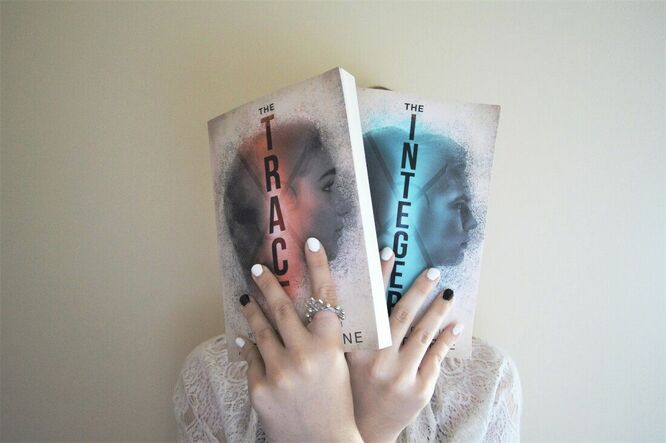
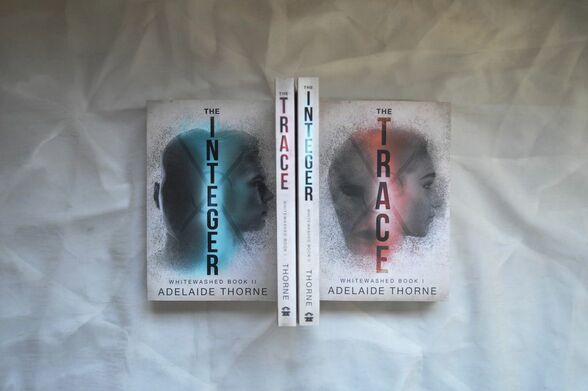

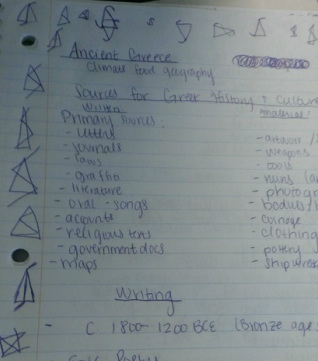
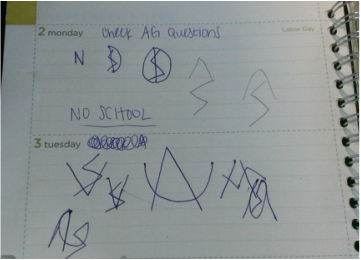
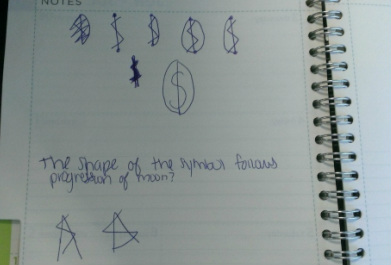
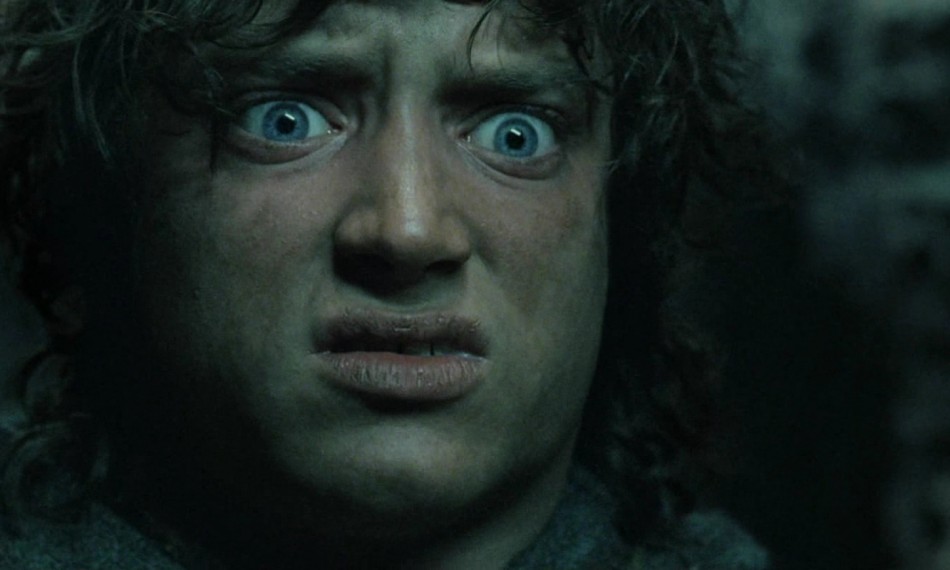
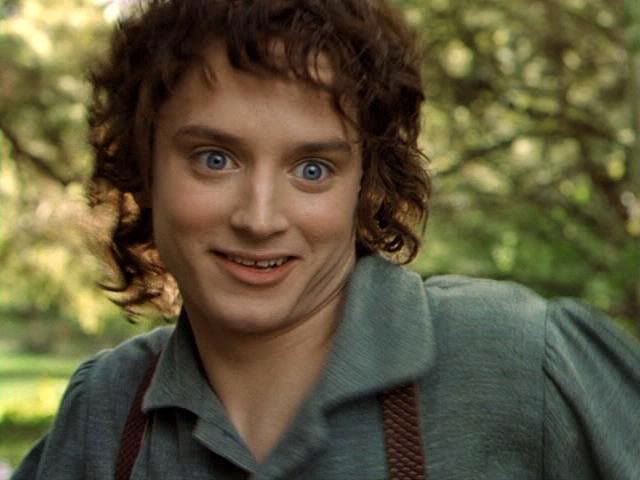
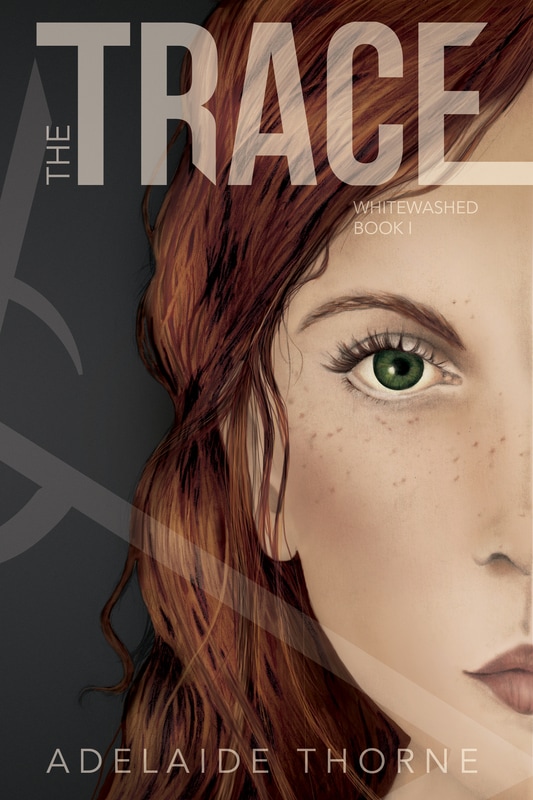
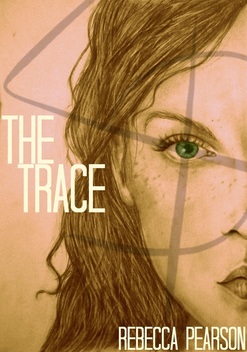
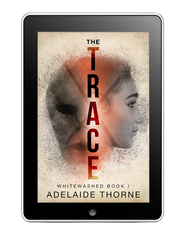
 RSS Feed
RSS Feed